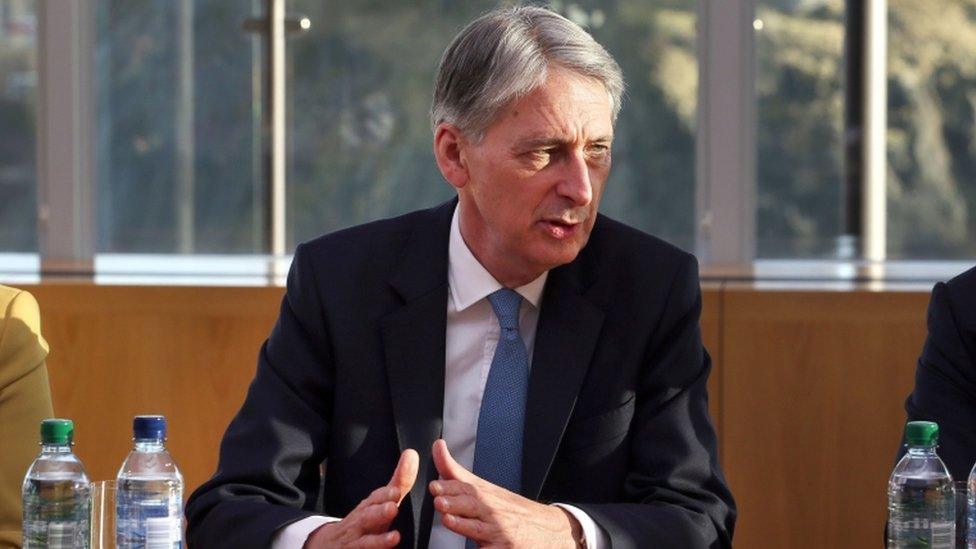Scaring Tavish Scott at FMQs
- Published
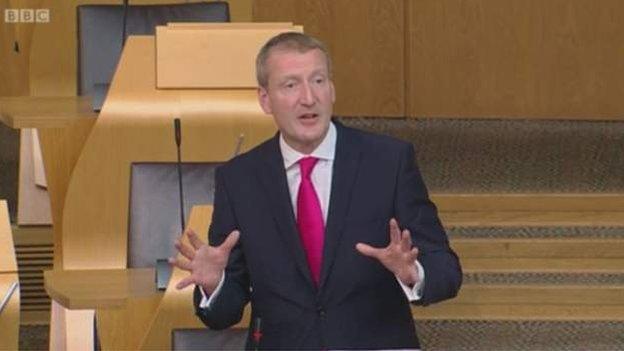
Tavish Scott does not scare easily
It takes a lot to scare Tavish Scott. He is after all from Shetland where the weather frequently rivals Antarctic conditions. In June.
But, apparently, recent developments in Scotland have left him in a state of fear and trembling, to borrow from the title of Søren Kierkegaard's greatest thriller. (Don't bother looking up the plot, turns out the jannie did it.)
And what has produced this state of trepidation in the Viking one? It is, according to Ruth Davidson, the appalling condition of the Scottish education system.
Ms Davidson, who leads the Tories, was citing comments made during a recent Holyrood committee hearing. Ms Davidson was seeking to assemble an argument to the effect that all the members of Team Scotland were shocked and appalled by what is going on in our schools.
One understands her desire to mount such an attack. But she went, perhaps, just a mite overboard. In her wide-ranging condemnation, it sounded as if Scotland's offspring were, almost without exception, unable to spell the word "Higher", let alone sit one.
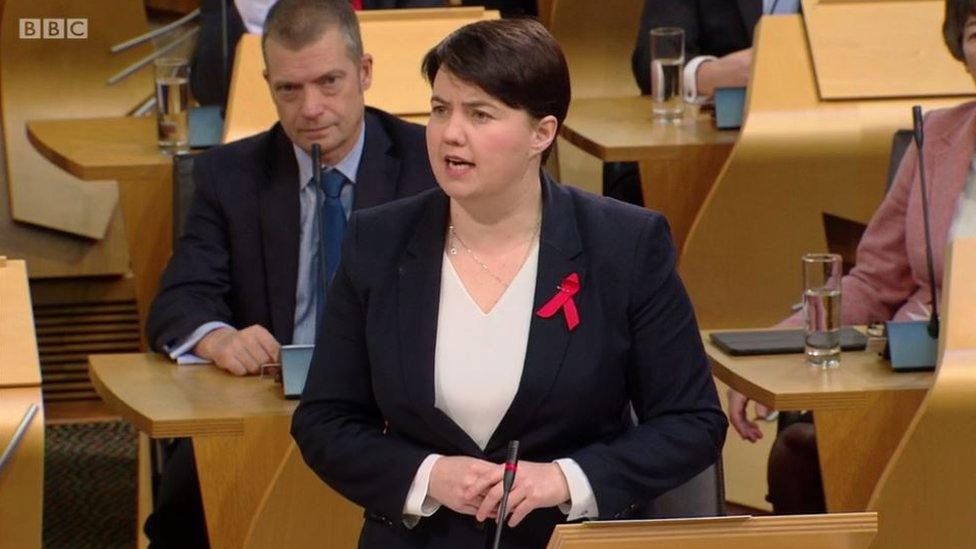
Ruth Davidson might have gone just slightly overboard in her attack
Now, no complacency, as Nicola Sturgeon noted. One thinks of the recent report repeating warnings that some children enter primary education unable to form coherent sentences. Learning to read, write and count can be impeded somewhat if the child struggles to talk.
But, on the day, Ms Davidson's condemnation was perhaps just a little broad brush. Certainly, Nicola Sturgeon appeared able to sidestep it reasonably easily.
The FM declared from the outset that it was not an object of government policy to deter folk from scaring Tavish Scott. Which seems a shame - although no doubt Mr Scott, as a former Guizer Jarl, can look after himself.
Ms Sturgeon then agreed that she was ultimately responsible for Scotland's schools. Having done so, she produced a series of stats designed to counter the impression of a system in crisis before referring to the Scottish government's review of school governance.
That very topic later caused a decent spat between the FM and Labour's Iain Gray. Mr Gray accused ministers of centralisation in that they were seemingly intent on reducing the educational role of local councils.
Plainly exasperated, Ms Sturgeon said the objective was precisely the contrary. The aim was to hand power to individual schools. This one seems set to involve prolonged controversy.
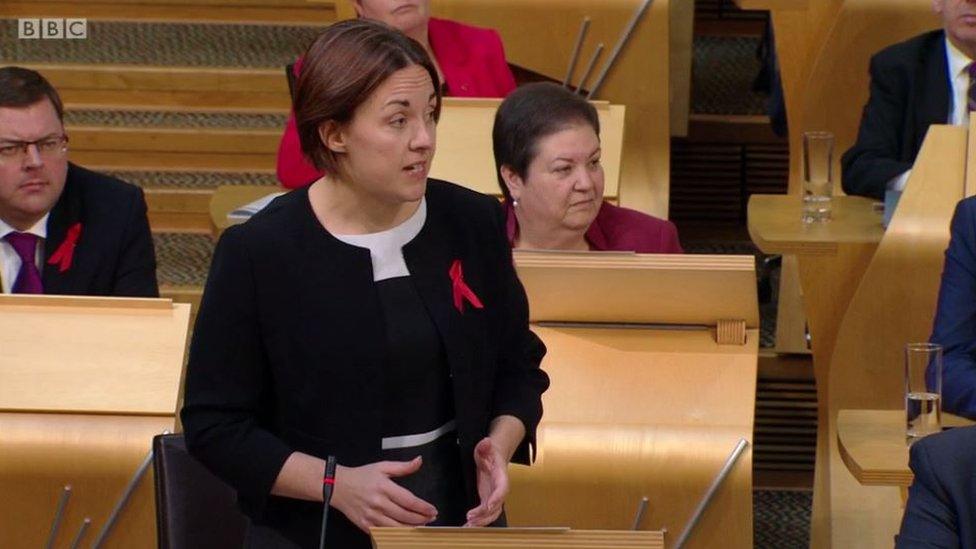
Kezia Dugdale also took a broad-brush approach
The exchanges with Labour's Kezia Dugdale followed a comparable pattern to those with Ms Davidson. The brush remained stubbornly broad. According to Ms Dugdale, the NHS in Scotland was in a complete mess. The service, she said, was stuck in the waiting room. Ms Sturgeon demurred. And that, again broadly, was that.
It took Willie Rennie to draw attention to the rather large pachyderm lurking shyly in the corner of the chamber. Brexit, money, the visit by the Chancellor. That sort of rot.
Mr Rennie voiced support for a second referendum. No, no, calm down, not on independence. On Europe. He suggested there should be a further referendum across the UK once the full terms of Brexit are known.
Certainly, this would be in keeping with the proud European tradition of holding repeated plebiscites until the voters get it right. Ms Sturgeon, however, offered no direct comment on that particular idea. She is, perhaps, more focused for now on dealing with the aftermath of Brexit Referendum One - while simultaneously contemplating indyref2.
Mr Rennie, however, also contrived to leave himself open to satire. It was that sort of day. His opening remarks were a vitriolic attack upon the Tories and, in particular, Ruth Davidson. She had, Mr Rennie reckoned, shifted her position on the impact of Brexit.
Snag is Mr Rennie then expanded his argument to include the issue of tax, inviting the FM to give a substantive answer rather than simply pointing a "bitter finger" at the Tories.
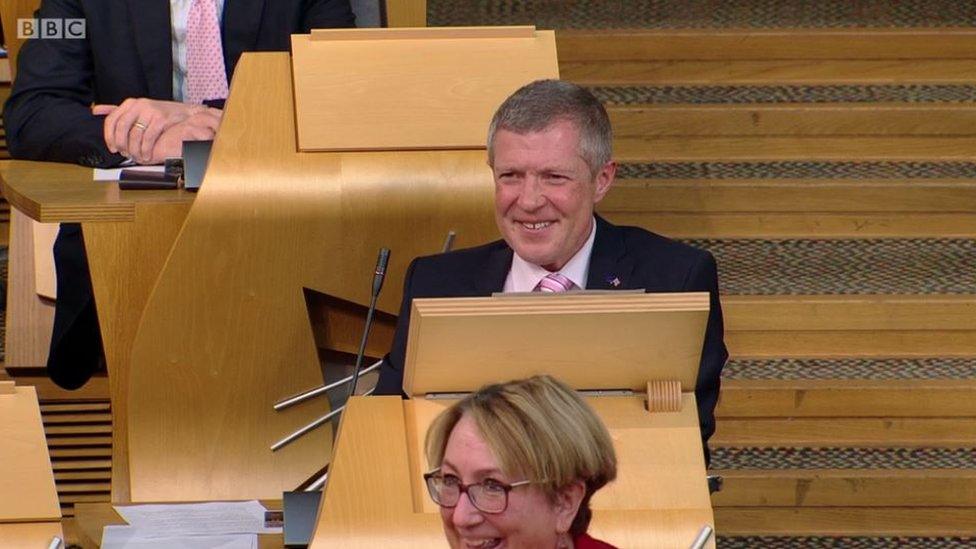
Willie Rennie reduced the chamber to guffaws
As the chamber guffawed, Ms Sturgeon aimed a rhetorical digit, bitter or otherwise, in Mr Rennie's direction, suggesting that he had descended (or risen) to "stand-up comedy".
Elsewhere in Edinburgh, the Chancellor, Philip Hammond, was expatiating on the Brexit negotiations. It was, he said, "not a realistic prospect" to contemplate a separate deal for Scotland within the ambit of UK talks. The UK was the member state. The EU dealt with member states.
In particular, he suggested that distinctive treatment for Scotland on immigration, within the UK, would be impractical.
This rebuff is, of course, entirely in keeping with the stance taken by the UK government to date. It comes as the Scottish government prepares to publish proposals for the UKG to consider with regard to the treatment of Scotland: in particular, relating to the primary objective of maintaining access to the single market.
Flexible Phil
Mike Russell, Scotland's Brexit Minister, has said that such comments tend to deal with the EU as historically structured, not the relationship which may need to be developed, post Brexit. Mr Russell has suggested that subsequent negotiations may require flexibility, which is not apparent at the outset.
And, certainly, Mr Hammond was in flexible mood when it came to remarks delivered by his Right Honourable friend, David Davis.
Mr Davis had suggested that Britain might, possibly, be prepared to contribute to EU funds in order to secure market access. This was, according to the Chancellor, merely an example of pre-bargain manoeuvring. An example of storing as many "tools in the box", as possible.
Which will prompt SG ministers to suggest that such willingness to bend might usefully be extended to Scotland.
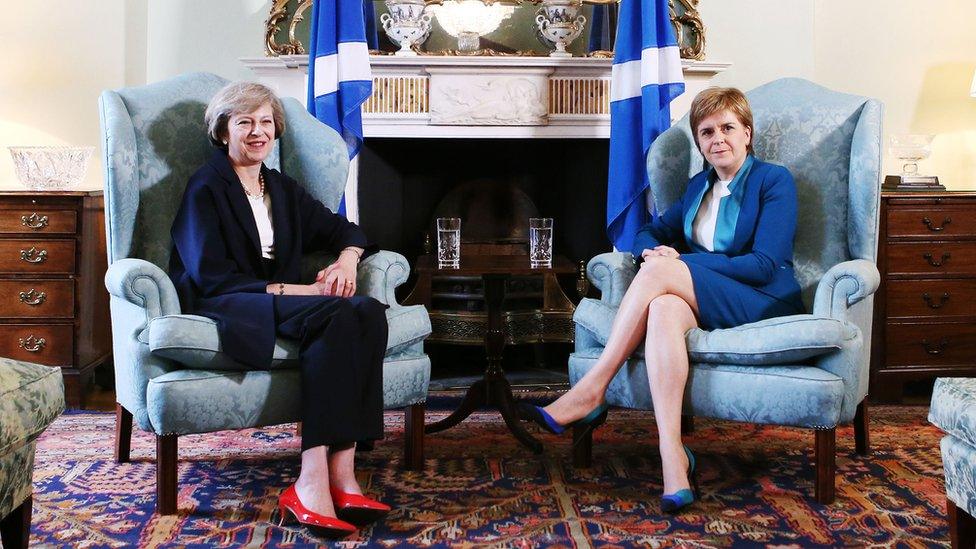
Theresa May has promised Nicola Sturgeon that she will listen to options over Scotland's place
It appears evident, however, that UK and Scottish ministers mean different things when they reflect upon the promise made by the Prime Minister to the First Minister that Scotland's interests will be considered and protected.
Scottish ministers argue that must mean the prospect of a distinctive Scottish deal if such is not possible through the ambit of UK-led negotiations.
UK ministers believe it means - and always has meant - that the interests of Scotland should be considered on a sectoral basis, as a significant factor to be borne in mind in developing an overall, all-encompassing deal for the UK as a whole.
Popular mandate
It is, once more, an issue of popular mandate. Scottish government ministers say any settlement must reflect the wishes of the Scottish people who voted substantially to remain with the EU. UK ministers say - and have always said - that the relevant mandate is the vote by the people of the UK as a whole to leave the European Union. As a whole, Scotland included.
If pressed, they say further that the people of Scotland voted to remain within the UK in the independence referendum of 2014 - and are thus subject to the outcome of the 2016 plebiscite.
At which point, Scottish ministers tend to note that the people of Scotland were assured in 2014 that the way of maintaining EU links was to vote to retain the UK. They tend to say that the people of Scotland are entitled to feel they have been duped.
Right now, little is certain. Mr Hammond's toolbox is still being assembled. The Brexit negotiations have yet to be triggered.
But it seems now as it seemed on June 24 that a further independence referendum is, to quote the First Minister, "highly likely".
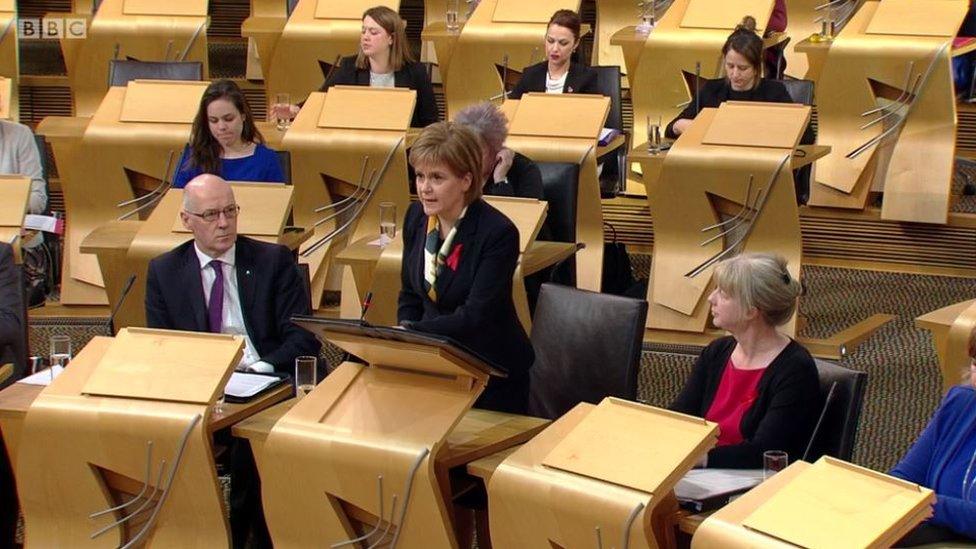
Ms Sturgeon has described a second independence referendum as "highly likely"
The scenario might - I emphasise, might - be this. The Scottish Government produce proposals for the UKG to consider anent Scotland's position in Brexit talks.
That analysis falls into three broad areas. One, Brexit is a mistake, a calamity. Two, to mitigate the impact, the UK should as a minimum retain membership of or access to the European single market. Three, if that proves impossible or unwelcome to the UKG, then Scotland must be able to maintain such access, quite possibly through the European Economic Area.
The UKG responds - eventually, after prolonged consideration, giving Scotland due respect. The response declines to accept point one, noting instead - as Mr Hammond did today - that the people of the UK have spoken and that their will must prevail.
To points two and three, UK Ministers repeat their desire - without being specific - to maintain access to European trade.
They then reject the notion of advocating distinct Scottish membership of the EEA on three grounds. That membership is currently confined solely to member states; that Scottish EEA membership, sans UK, would involve customs controls at the border between Scotland and England; that such an arrangement would interfere with cross-border trade in the UK.
Worth to Scotland four times the value of EU trade - as Mr Hammond also pointed out today, mirroring umpteen such comments by other Conservatives, both at Holyrood and Westminster.
Indyref2 caution
At which point, the choice reverts to Nicola Sturgeon. She is cautious about holding indyref2, fearing the impact of a further potential defeat. But she may feel constrained to take the chance offered by Brexit. The trigger, as it has been described.
She may feel, as she told me in an interview, that she has a "duty" to give the Scottish people the opportunity.
Timetable? Allow the incipient terms of the Brexit deal to emerge during 2017. If they are inimical to Scottish (and UK) interests, then it might seem to the FM that an opportunity has arisen to offer independence in contradistinction to the emerging Brexit package. Thus pointing to an independence referendum in 2018.
Either / or. Another Kierkegaard blockbuster.
- Published1 December 2016
